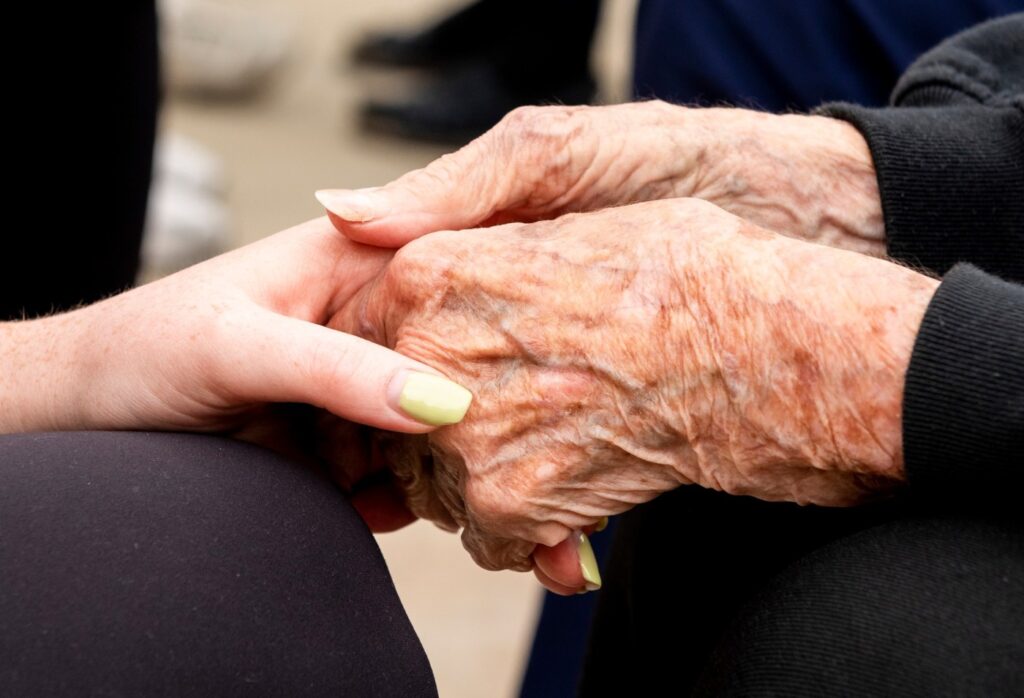
By Dr. Jeffrey Luther
Contributing writer
For many, Valentine’s Day, which the country marked last week, is a beloved tradition.
But for some older adults who have lost their loved ones, the holiday may bring a sense of loneliness and feelings of isolation.
Loneliness is an unpleasant emotion that we all feel from time to time. But when these feelings distress you to the point of affecting your day-to-day life, it may be time to look into the reasons those feelings exist.
Dr. Jeffrey Luther. (Photo courtesy of MemorialCare Long Beach Medical Center)
Factors that can contribute to loneliness include:
Our social circles begin to shrink. Either people move away and lose connection, or they die.
Difficulty meeting with others in person because of changes in mobility or transportation (and the pandemic).
Poor access to or lack of knowledge about how to connect with people virtually.
Age-related conditions like hearing loss and eye diseases, which can make it difficult to communicate and leave people feeling like it’s not worth the effort to meet up or communicate with friends and family.
Lack of self-confidence. As we age, we develop chronic medical conditions that can lead to things like incontinence or require the use of medical equipment, such as mobility aids and oxygen therapy systems. These items can be seen as a bother when trying to arrange plans to meet up.
These are just some of the issues that can increase the feeling of loneliness. There could be many other factors that depend on the person’s lifestyle and social activity. Either way, it’s important to note when you are starting to feel lonely.
Like any major emotional shift, good or bad, loneliness can affect a person’s health in significant ways.
Health effects of loneliness
Loneliness can put you at increased risk of:
High blood pressure.
Heart disease.
Obesity.
Weakened immune system.
Anxiety.
Depression.
Cognitive decline.
And yes, this list might sound daunting or appear like it was read off the back of a prescription bottle.
But there are ways to help make you feel less lonely or at least have the feeling of loneliness fall to the background — even if just for a moment of your day.
Alleviating loneliness
One way to help alleviate loneliness is volunteering. Sharing your skill sets or stories with people can help bridge the gap between generations and allow a new generation to continue sharing your knowledge.
If volunteering isn’t something you’re interested in, find an activity that you enjoy. Pick up an old hobby or take a class to learn something new. Attending classes can help you meet new and like-minded people.
And if the thought of meeting new people seems like a bit of a large step, start off smaller and schedule a regular time to connect with those you already know, like family, friends and neighbors. You can do this by speaking with them in person, over the phone, via email or whatever works best for you.
Maybe your schedule doesn’t match up with your friends and family for a regular time to chat, and maybe venturing out to a class or volunteering on your own sounds a bit daunting. Try signing up for programs like the MemorialCare 55+ Program. Programs like these can provide easy access to resources, health and wellness information, and exclusive perks free to members.
You are not alone
Although it may feel like it at times, you are not alone.
Wherever you live, you have a community of people who want to see you flourish.
Meet with your doctor to assess your risk for loneliness. Your doctor can guide you to tools to help alleviate your loneliness and get you connected to your community resources for help.
Dr. Jeffrey Luther, M.D., is a faculty member of the Family Medicine Residency Program at MemorialCare Long Beach Medical Center, where he balances his time providing patient care with teaching the next generation of family physicians. Luther, a Southern California native, came to MemorialCare in 1993 and was attracted to family medicine for its breadth and the opportunity to have lasting relationships with his patients across the age spectrum.
